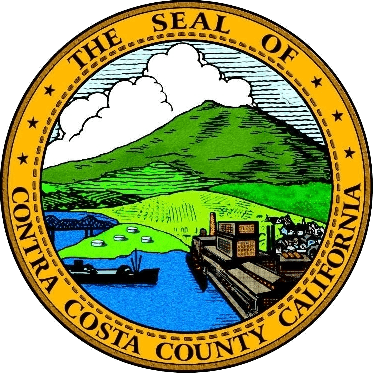Will Contra Costa County’s next District Attorney commit to criminal justice reform?
After 10 years under the reign of Mark Peterson, the Contra Costa County District Attorney’s office will finally get a much-needed facelift. In September, the county’s Board of Supervisors will have a chance to pick an interim district attorney who might better represent the interests of the California’s seventh largest county. It might seem an […]

After 10 years under the reign of Mark Peterson, the Contra Costa County District Attorney’s office will finally get a much-needed facelift. In September, the county’s Board of Supervisors will have a chance to pick an interim district attorney who might better represent the interests of the California’s seventh largest county.
It might seem an easy task to follow Peterson’s act: the scandal-ridden D.A. resigned in June after being detained on felony perjury and grand theft charges, and admitted to embezzling $66,000 in campaign funds for personal use. In many ways, it would be a challenge to look worse than Peterson. But assuming the 12 candidates intend to avoid such scandals, they have a bigger task ahead — finally leading the office toward the criminal justice reform initiatives the community has supported for years.
On August 12, the five finalists participated in a public forum, answering policy questions from community members and stakeholders. Diana Becton, Paul Graves, Thomas Kensok, Brad Nix, and Patrick Vanier touched oneverything from the death penalty, to immigration, to police misconduct.
The issues discussed at the forum matter not just because they reflect a growing national awareness of prosecutors’ roles in mass incarceration and the power they can wield in leading criminal justice reform, but because Contra Costra County voters have been ignored on this front for years. During his tenure, Peterson repeatedly voted against the interests of the electorate on criminal justice reform issues. The former D.A. opposed Prop. 47, Prop. 36, and Prop. 57, all of which were supported by the majority of voters in his county. Peterson, a staunch “law-and-order” prosecutor, also denied the existence of racism in the criminal justice system.
Now the county’s board of supervisors can assess which candidate will promise to turn things around and restore public trust in the D.A.’s office before the public votes in June 2018. Some of the contenders seem well aware of the issues Peterson ignored or denied: Diana Becton, Patrick Vanier, and William Green have all been vocal about their commitment to reducing racial disparities in law enforcement.
“We need to put more resources towards data so we can find out who is being stopped and the reasons for those stops, so we can evaluate whether there’s disparate treatment,” said Becton at the forum.
All five candidates promised to prosecute law enforcement who engage in misconduct as they would any other citizen. Brad Nix suggested requiring deputy prosecutors to participate in trainings at the local police academy to reduce misconduct. Becton’s suggestion that officers be required to undergo de-escalation training was met by applause from an otherwise quiet audience. When it came to the death penalty, none of the five candidates promised never to use it. Short of a full commitment to abandon capital punishment, they acknowledged that they would only use it in the most severe cases. Tom Kensok promised to “cut back dramatically” on death penalty cases.
The candidates were also pressed on their stances on bail reform, specifically their support for S.B. 10. The bill, which passed the California senate with bipartisan support in May, would require a pretrial services agency to conduct a risk assessment to determine whether detaining a person is necessary for public safety, and when detention was deemed necessary, would require courts to set the least restrictive amount of cash bail possible to ensure a defendant’s return to court. Only Vanier explicitly gave his support for the bill, calling the county’s current cash bail system “inequitable.” Paul Graves called the bill “unconstitutional,” but said he would support broader bail reform efforts. Becton dodged a yes or no answer when asked if she supported it, but said that “D.A.s should be leading the discussion when it comes to bail reform.”
Last week, Becton and Kensok admitted to the East Bay Times that they had plagiarized parts of their applications for the position. It’s unclear how this revelation might impact the board of supervisors’ decision.
Sunday’s forum made clear that some of the candidates have noticed which issues Peterson disregarded, regardless of their significance to the community. Criminal justice reform in Contra Costa County is overdue, and whomever becomes the county’s next top cop has a chance to bring the kind of change the community has supported for years. If the most innovative and progressive contenders genuinely intend to implement the reforms they spoke of this past weekend, the future for Contra Costa County may be bright.
